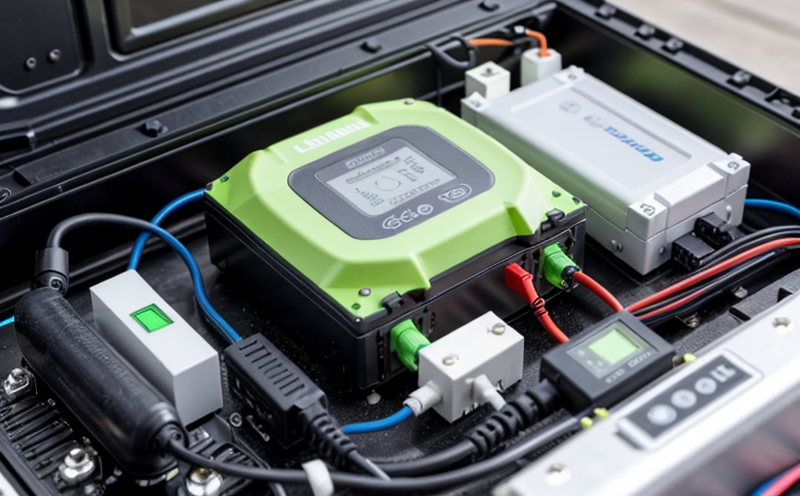UNE EN 50342 Lithium-Ion Battery Testing for Automotive Lead-Acid Replacement
The European standard UNE EN 50342 provides a framework to ensure the safety, performance, and durability of lithium-ion batteries designed as replacements for lead-acid batteries in automotive applications. This comprehensive testing protocol covers multiple aspects critical for the automotive industry, including thermal stability, mechanical robustness, charge-discharge behavior, and more.
The standard aims to address the growing demand for sustainable and efficient energy storage solutions. Lithium-ion batteries are increasingly being considered as replacements for traditional lead-acid batteries due to their higher energy density and lower environmental impact. However, ensuring these batteries meet stringent safety and performance criteria is paramount.
UNE EN 50342 focuses on key areas that ensure the reliability of lithium-ion batteries in automotive applications:
- Thermal Management: Ensures the battery operates within safe temperature limits to avoid overheating and potential fire hazards.
- Mechanical Integrity: Tests the structural integrity under various loading conditions to ensure it can withstand typical automotive stresses.
- Cycling Performance: Evaluates the battery's ability to maintain its performance over multiple charge-discharge cycles, which is crucial for long-term reliability.
The testing protocol is rigorous and involves extensive laboratory-based experiments to simulate real-world conditions. This ensures that the batteries meet or exceed the required standards before they are deployed in automotive applications. Compliance with UNE EN 50342 not only enhances safety but also helps manufacturers comply with international regulations, thus gaining a competitive edge in the global market.
For R&D engineers and quality managers, understanding these parameters is essential to developing high-performance batteries that meet both customer expectations and regulatory requirements. This standard serves as a critical guide for ensuring that lithium-ion batteries are safe, reliable, and efficient replacements for lead-acid batteries.
Benefits
- Enhanced Safety: Ensures the battery operates within safe temperature limits to avoid overheating and potential fire hazards.
- Improved Durability: Tests ensure the battery can withstand various loading conditions, enhancing its longevity in automotive applications.
- Regulatory Compliance: Helps manufacturers meet international standards, thereby facilitating market access and compliance with legal requirements.
- Innovation Facilitation: Provides a benchmark for R&D teams to innovate while ensuring the reliability and safety of their products.
By adhering to UNE EN 50342, manufacturers can ensure that their lithium-ion batteries are not only safe but also perform exceptionally well in real-world conditions. This standard fosters innovation and ensures consistent quality across different models and brands.
Why Choose This Test
- Comprehensive Coverage: The test protocol covers multiple critical aspects of lithium-ion batteries, ensuring a holistic evaluation.
- International Recognition: UNE EN 50342 is widely recognized and accepted in the automotive industry globally, enhancing market credibility.
- Expertise and Experience: Our laboratory offers extensive experience in conducting such tests, ensuring accurate and reliable results.
- Cost-Effective Solutions: By identifying potential issues early on, UNE EN 50342 helps minimize costly rework and delays during the development process.
Choosing UNE EN 50342 Lithium-Ion Battery Testing for Automotive Lead-Acid Replacement ensures that your product not only meets but exceeds international standards. Our laboratory is committed to providing precise, reliable testing services tailored to meet the stringent requirements of this standard.
International Acceptance and Recognition
- Global Market Access: Compliance with UNE EN 50342 opens doors to international markets, ensuring your product meets global standards.
- Reputation Building: By adhering to this standard, manufacturers can build a reputation for producing high-quality, reliable products.
The UNE EN 50342 is not just a local standard; it enjoys wide acceptance across Europe and beyond. It ensures that the lithium-ion batteries meet rigorous safety and performance criteria, making them suitable replacements for lead-acid batteries in various automotive applications.
Our laboratory has successfully conducted numerous tests to this standard, providing clients with accurate and reliable results. This international recognition enhances the credibility of your product, ensuring it meets or exceeds global expectations.





